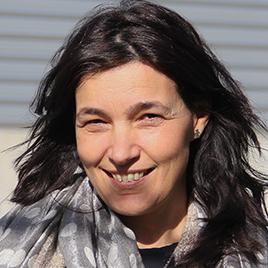Objectives and competences
Objectives and competences
The main objective is to show the importance of microorganisms on ecosystem functioning, particularly in biogeochemical cycling, and to demonstrate the role and applicability of microorganisms in the protection and preservation of the environment.
By the end of the unit the students should:
- Be aware of the microbial diversity in different habitats and of the symbiotic relationships between microorganisms in the environment
- Know and identify the relationship between environmental conditions and the presence / microbial activity in a given ecosystem;
- Understand the participation of microorganisms in biogeochemical cycling and their impact on the environment
- Be able to explain and identify an eutrophication process and be able to measure/assess the microbiological quality of water bodies based on indicator microorganisms
- Be aware of the mechanisms and potential application of microbial ecology to areas such as agriculture, mineral extraction and bioremediation.
Teaching Methodologies
This unit comprises Lectures, Laboratory Work, Tutorials and Field trips. Lectures target for the exposition of the major themes of the unit, introducing and complementing the remaining typologies of classes, frequently resorting to practical examples illustrating the theme and challenging students to contribute with their reflections throughout the session. Lab, OT, TP and TC classes complement the theoretical sessions, consolidating the objectives of the curricular unit. In laboratory classes, students explore different methodologies for analyzing microorganisms and communities in the environment, both in soil and water, through a mini project. This mini project requires students to be able to design an experiment, from choosing a theme and work objectives, to defining methodologies to be used to achieve the objectives, which are discussed in tutorial classes. The mini project is focused on one of the major themes of the curricular unit. In this way, students are thus confronted with a research environment. In tutorials, students analyze a scientific article throughout the semester, from the definition of the topic to its development, for which they have the teacher's guidance. The topic to be presented allows exploring different areas of knowledge of the discipline, always in clear articulation with its objectives. Two field trips are carried out (to a Water Treatment Plant and to a Wastewater Treatment Plant (WWTP)), which serve as an integrating point of the discipline as they are articulated with the theoretical sessions and also serve as a motto for an interim assessment of knowledge, which is also a motivating factor for continued monitoring of the discipline.
Syllabus
Lectures:
Microbial ecology concepts
Methods of analysis of microbial communities in the environment
Aquatic environments and eutrophication
Terrestrial environments
Biogeochemical cycles: The carbon and oxygen cycles; The nitrogen cycle; The sulfur cycle; The iron cycle; Microbial transformation of mercury and methylmercury
Biodegradation of xenobiotic compounds
Bioremediation concepts and their application
Theoretical-Practical Classes:
Introduction to laboratory work – its explanation and framework.
Introduction to visits and integrated assessment of knowledge.
Laboratory Classes:
Mini-project: Topic related to environmental microbiology chosen by students. Oral presentation of the work to the whole class at the end of the semester.
Tutorial Guidance:
Analysis and discussion of a case study (scientific article, technical study) on environmental microbiology, selected by the students and with the teacher's approval. Oral presentation to the whole class.
Fieldwork:
Visits to a municipal wastewater treatment plant and to a water treatment plant.





